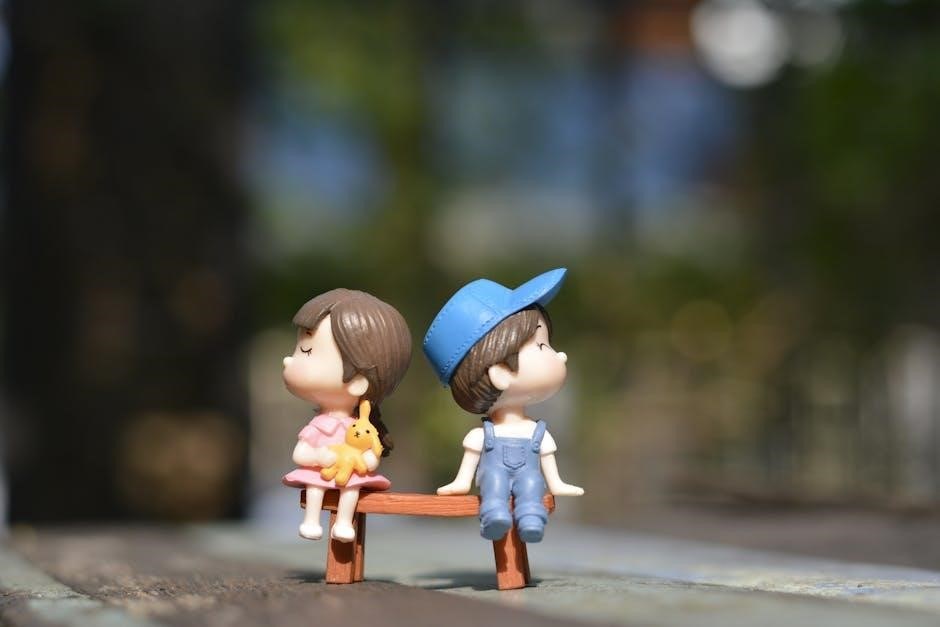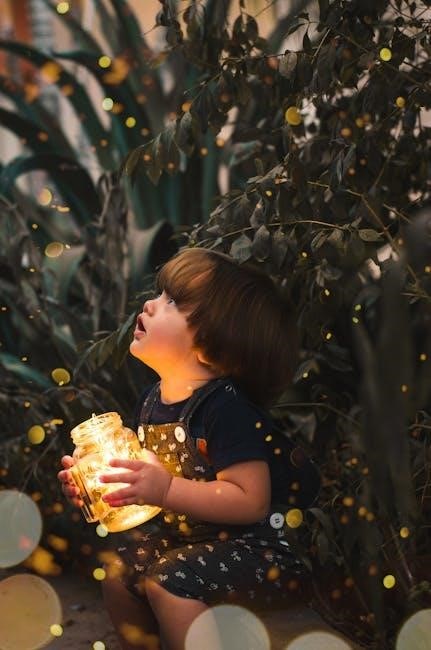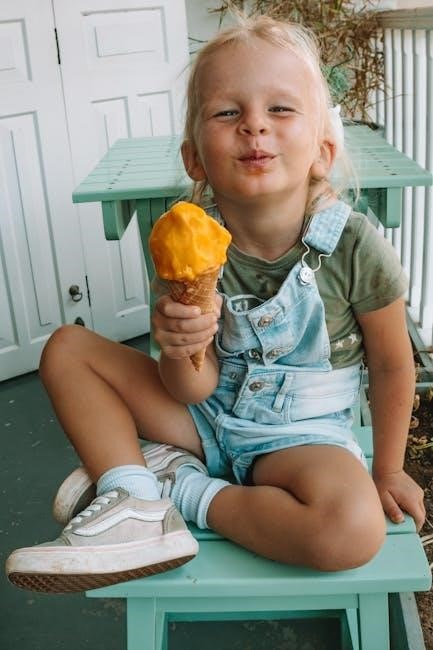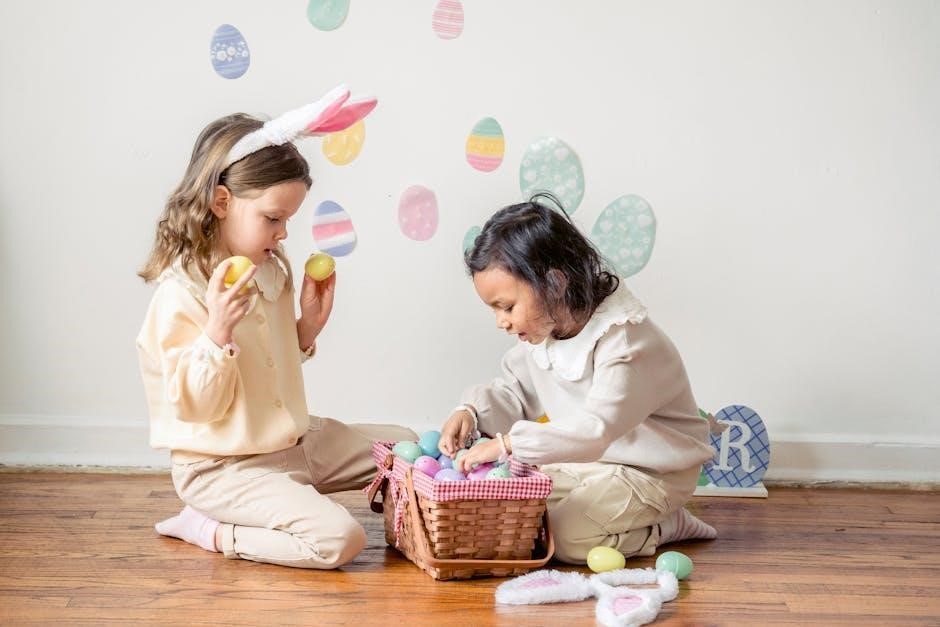lost girl play script pdf

Lost Girl is a captivating play that delves into the life of Wendy Darling, exploring themes of identity and growth. Written by Kimberly Belflower, it offers a fresh perspective on a beloved character, blending emotional depth with artistic storytelling. The script, available in PDF format, provides a seamless narrative for both readers and performers, making it a valuable resource for theater enthusiasts.
1.1 Overview of the Play
Lost Girl follows Wendy Darling’s journey as she navigates identity, loss, and growth after returning from Neverland. The play blends emotional depth with artistic storytelling, offering a fresh perspective on a beloved character. It explores themes of self-discovery and the challenges of adulthood through Wendy’s experiences, making it a compelling and relatable drama for audiences. The script is available in PDF format for easy access.
1.2 Background and Inspiration
Lost Girl draws inspiration from J.M. Barrie’s Peter Pan, focusing on Wendy Darling’s life after Neverland. Playwright Kimberly Belflower crafts a story rooted in personal growth and emotional depth, reflecting Wendy’s struggles with identity and adulthood. The script’s development was influenced by Belflower’s own experiences and insights, resulting in a narrative that resonates with audiences seeking relatable and poignant storytelling.
Characters and Their Development
Lost Girl centers on Wendy Darling, a woman grappling with her past and identity. The play explores her emotional journey and relationships with other characters, revealing depth and complexity in her transformation from childhood to adulthood.
2.1 Wendy Darling: The Central Character
Wendy Darling is the heart of Lost Girl, a play that explores her life after Neverland. Now a young woman, Wendy is driven by a quest to reclaim her kiss from Peter Pan, symbolizing her struggle to embrace adulthood. The script delves into her emotional depth, revealing a character torn between nostalgia and the need to move forward. Her journey is both poignant and empowering, showcasing her growth and resilience.
2.2 Other Key Characters in the Play
Beyond Wendy, the play features a cast of compelling characters, including Peter Pan, Tinker Bell, and the Lost Boys. Peter embodies the refusal to grow up, while Tinker Bell’s jealousy and loyalty add emotional depth. The Lost Boys, now adults, grapple with their own identities, symbolizing the loss of innocence. Each character’s journey intertwines with Wendy’s, enriching the narrative’s complexity and emotional resonance, making the play a multifaceted exploration of growth and self-discovery.
Themes and Symbolism
The play explores themes of identity and self-discovery, with the nursery symbolizing Wendy’s memories and inner struggles, reflecting Kimberly Belflower’s artistic vision.
3.1 Identity and Self-Discovery
Wendy Darling’s journey in Lost Girl revolves around her quest for self-discovery, as she navigates the challenges of adulthood and her lingering connection to Neverland. The play delves into her internal conflict, showcasing her struggle to reconcile her childhood fantasies with the realities of growing up. Through poignant dialogue and symbolic settings, Wendy’s transformation highlights the universal theme of finding one’s identity and purpose in life. The script vividly portrays her emotional evolution, making it relatable to audiences facing similar existential questions.
3.2 The Concept of Growing Up
Lost Girl profoundly explores the complexities of growing up through Wendy’s experiences. The play highlights her transition from youthful innocence to adult responsibilities, emphasizing the bittersweet nature of maturity. Themes of letting go and embracing change are central, as Wendy confronts the realities of her past and future. The script’s nuanced portrayal of this universal journey resonates deeply, offering a compelling commentary on the challenges and inevitability of growing up.

Script Style and Dialogue
The script’s fluid style and realistic dialogue captivate audiences, offering relatable character interactions that resonate emotionally, thus making the narrative both engaging and memorable.
4.1 The Flow and Structure of the Script
The script’s flow is seamless, with a well-structured narrative that transitions smoothly between scenes. It balances emotional depth with dynamic pacing, keeping audiences engaged. The use of visual elements, like cardboard boxes, adds a unique ticking clock, grounding the story in reality. This structure enhances the emotional journey, making Wendy’s story both poignant and relatable, as she navigates her past and present.
4.2 Realistic and Relatable Dialogue
The dialogue in Lost Girl feels natural and authentic, capturing the complexities of human emotions. Conversations flow effortlessly, making characters’ interactions believable; Wendy’s internal struggles and relationships are portrayed through nuanced exchanges, resonating deeply with audiences. This realism enhances the play’s emotional impact, creating a connection between the characters and viewers, and making the story unforgettable in its sincerity and depth.
Production and Stage Directions
The play uses cardboard boxes as a visual ticking clock, grounding the story in reality. Creative set design transforms the nursery into memory spaces, enhancing emotional depth and continuity. Music plays a subtle yet vital role, underscoring key moments and amplifying the drama, making the production visually and aurally engaging for audiences.
5.1 Visual Elements and Set Design
The play’s visual elements, such as cardboard boxes, serve as a metaphorical ticking clock, symbolizing time and memory. The set design transforms the nursery into various locales from Wendy’s past, creating a dynamic and immersive environment. Minimalistic props and clever staging enhance the emotional depth, while lighting and costumes further emphasize the transition between reality and memory, ensuring a visually engaging production.
5.2 The Role of Music in the Play
Music plays a pivotal role in Lost Girl, enhancing emotional depth and guiding the narrative. From evocative melodies to subtle transitions, the soundtrack complements the characters’ journeys. Songs like Lost Girls by Nova Rockafellar set the tone, while instrumental pieces bridge past and present. The carefully curated score amplifies the play’s themes of identity and growth, creating a harmonious balance between sound and storytelling that captivates the audience.
Relevance of “Lost Girl” in Modern Theater
Lost Girl resonates with contemporary audiences through its exploration of identity and self-discovery, offering a fresh perspective on classic themes. Its emotional depth and universal appeal ensure its relevance in modern theater, making it a timeless and relatable production for today’s audiences.
6.1 Contemporary Themes and Messages
Lost Girl tackles universal themes like identity, self-discovery, and the challenges of growing up, resonating deeply with modern audiences. The play’s exploration of emotional struggles and the quest for belonging remains highly relevant, offering a fresh yet timeless perspective on personal growth and societal expectations. Its ability to balance fantasy with real-world issues makes it a compelling piece for contemporary theater.
6.2 Audience Reception and Reviews
Audiences have embraced Lost Girl for its emotional depth and relatable storytelling. The play’s ability to balance humor with poignant themes resonates strongly, creating a memorable experience. Fans praise its realistic dialogue and strong character development, particularly Wendy’s journey, which many find inspiring and heartfelt.
Reviews highlight the script’s artistic merit and its capacity to evoke empathy. The blend of fantasy and real-world issues appeals to a broad audience, making it a standout piece in modern theater.

Availability of the PDF Script
The Lost Girl play script in PDF format is readily available online through the official website and authorized retailers, ensuring easy access for theater enthusiasts and performers.
7.1 Where to Find the Script Online
The Lost Girl play script in PDF format can be found on the official website of playwright Kimberly Belflower, as well as on reputable platforms like Amazon, Drama Book Shop, and authorized theatrical publishers. Additionally, it is available for download through various online marketplaces and educational resources specializing in theater scripts. Ensure authenticity by purchasing from licensed distributors to support the creator and comply with copyright laws.
7.2 Licensing and Performance Rights
To stage Lost Girl, obtaining the necessary performance rights is essential. Contact the playwright or authorized publishers to secure licensing. Ensure compliance with copyright laws to avoid legal penalties. Proper licensing supports the creator and guarantees legal performance rights, allowing theaters to produce the play professionally and ethically.

The Playwright’s Vision
Kimberly Belflower’s vision for Lost Girl revolves around exploring Wendy Darling’s journey of self-discovery and growth. Her creative process reflects a deep understanding of the character’s emotional depth.
8.1 Kimberly Belflower’s Creative Process
Kimberly Belflower’s creative process for Lost Girl was deeply inspired by Wendy Darling’s untold story. She crafted a narrative that explores identity and growth, blending emotional depth with relatable dialogue. Belflower’s script seamlessly integrates visual elements and realistic interactions, offering a fresh perspective on a beloved character. Her work reflects a nuanced understanding of Wendy’s journey, making the play resonate with diverse audiences.
8.2 Personal Insights and Motivations
Kimberly Belflower’s personal insights and motivations for writing Lost Girl stem from her own journey of self-discovery and emotional growth. She draws inspiration from her experiences, weaving them into Wendy’s story to create a relatable and authentic narrative. Belflower’s motivation was to explore the complexities of identity and the challenges of adulthood, offering audiences a profound reflection on their own lives through Wendy’s transformative journey.

Historical and Cultural Context
Lost Girl draws inspiration from classic literature, particularly J.M. Barrie’s Peter Pan, while blending modern themes and cultural relevance. The play offers a fresh, contemporary perspective on timeless stories.
9.1 Influences from Classic Literature
Lost Girl is deeply influenced by J.M. Barrie’s Peter Pan, revisiting Wendy Darling’s journey. The play draws parallels with classic themes of youth, identity, and the reluctance to grow up, while adding modern twists. Kimberly Belflower’s script weaves elements of fairy tales and coming-of-age stories, creating a narrative that resonates with both nostalgic and contemporary audiences. This blend of timeless and fresh ideas enriches the play’s cultural and literary depth.
9.2 Cultural Significance of the Play
Lost Girl holds significant cultural value by reimagining Wendy Darling’s story for modern audiences. It bridges classic and contemporary themes, exploring identity and resilience. The play’s emotional depth and relatable dialogue foster a connection with viewers, making it a relevant work in today’s theater. Its exploration of universal human experiences contributes to its cultural impact and enduring appeal.

Educational and Artistic Value
Lost Girl serves as a valuable tool in theater studies, offering insights into character development and script structure. Its artistic merit lies in its seamless storytelling and emotional depth, making it a compelling resource for both educational and theatrical purposes.
10.1 Use in Theater Studies and Education
Lost Girl is a valuable resource for theater studies, offering insights into character development, thematic exploration, and script structure. Its relatable dialogue and emotional depth make it an excellent tool for educating students on storytelling techniques. The play’s focus on identity and growth provides rich material for analysis, while its artistic merit inspires aspiring playwrights and performers, enhancing both educational and theatrical experiences.
10.2 Artistic Merit and Critical Acclaim
Lost Girl has received widespread critical acclaim for its nuanced storytelling and emotional depth. Critics praise its ability to reimagine Wendy Darling’s journey with contemporary relevance. The script’s seamless flow and relatable dialogue highlight Kimberly Belflower’s artistic skill. Audiences and reviewers alike commend the play’s ability to evoke empathy and reflection, solidifying its reputation as a standout work in modern theater, cherished for its artistic brilliance and emotional resonance.

Comparisons with Other Works
Lost Girl draws parallels with Peter Pan, offering a modern twist on classic themes. Its exploration of identity and growth mirrors other coming-of-age tales, yet its unique narrative style sets it apart, providing a fresh perspective on familiar motifs while maintaining emotional depth and artistic originality.
11.1 Similar Themes in Other Plays
Lost Girl resonates with themes found in Peter Pan and other coming-of-age stories. Identity, self-discovery, and the struggle between innocence and adulthood are common motifs. Plays like The Glass Menagerie and The Catcher in the Rye also explore these universal themes, though Lost Girl offers a unique feminine perspective, making it a standout in contemporary theater. Its emotional depth and relatable characters create a lasting impact on audiences.
11.2 Unique Aspects of “Lost Girl”
Lost Girl stands out for its unique portrayal of Wendy Darling’s post-Neverland journey. Unlike traditional retellings, it focuses on her internal struggles and growth, blending fantasy with real-world challenges. The script’s non-linear storytelling and poetic dialogue add depth, while its exploration of feminism and identity offers a fresh perspective. This play captivates audiences with its raw emotion and relatable themes, making it a standout in modern theater.
Lost Girl leaves a lasting impact with its emotional depth and relatable themes, promising a bright future in theater. Its legacy continues to inspire new adaptations and acclaim.
12.1 The Legacy of “Lost Girl”
Lost Girl has established itself as a timeless work, resonating with audiences through its emotional depth and relatable themes. Kimberly Belflower’s script continues to inspire, leaving a lasting impact on modern theater. Its exploration of identity and growth has cemented its reputation as a significant piece in contemporary drama, ensuring its influence for years to come.
12.2 Potential for Future Adaptations
Lost Girl holds immense potential for future adaptations, offering a rich narrative that could transition seamlessly into film, television, or digital series. Its emotional core and relatable themes make it a prime candidate for reinterpretation in new formats. The play’s vivid characters and layered storytelling provide a strong foundation for exploring different mediums while maintaining its original essence and resonance with audiences.